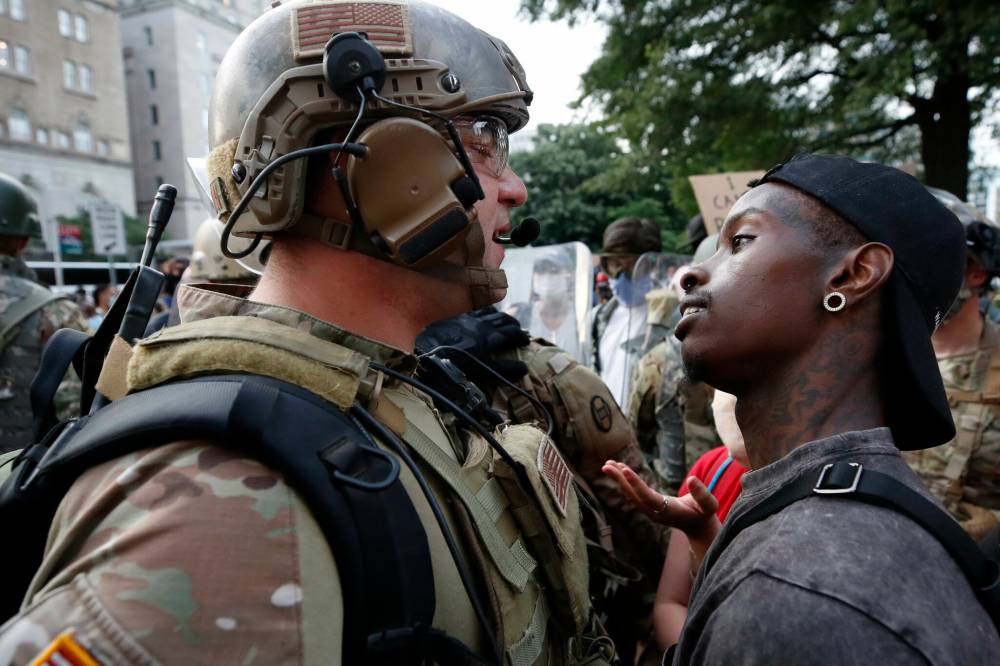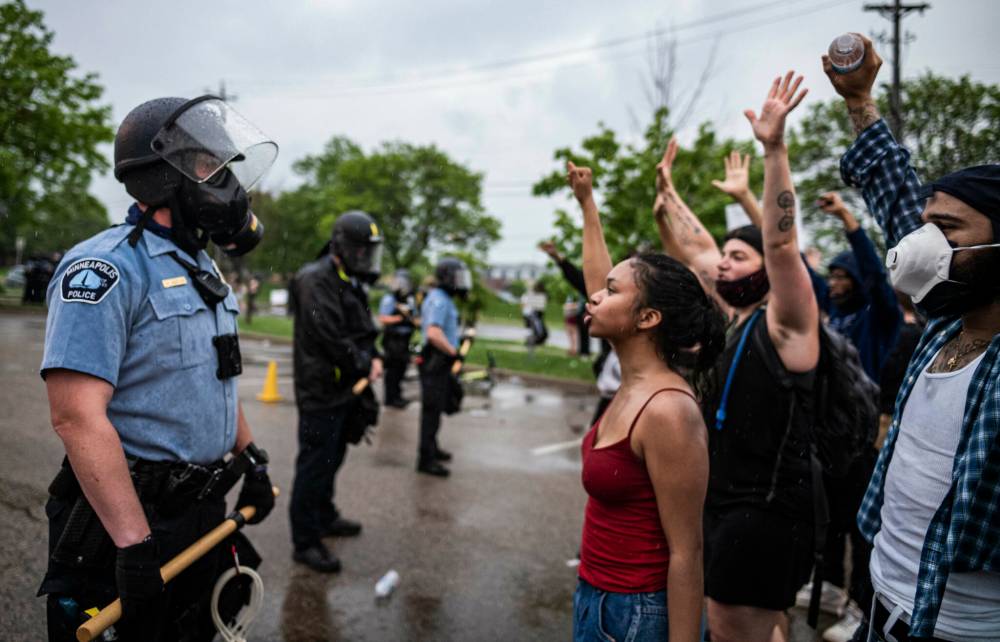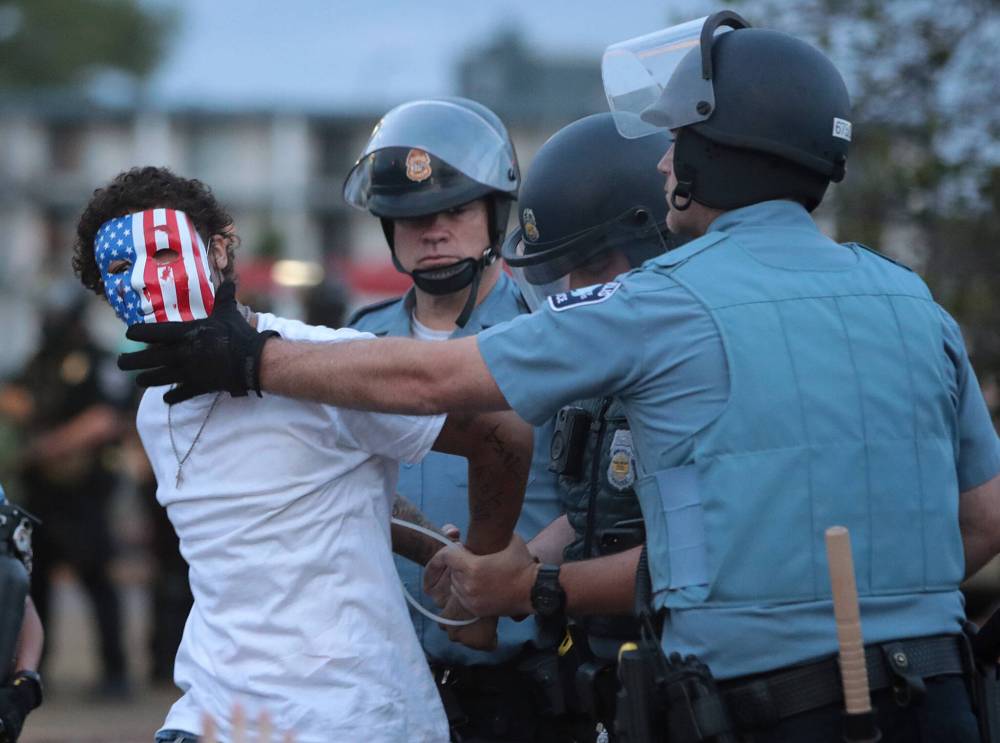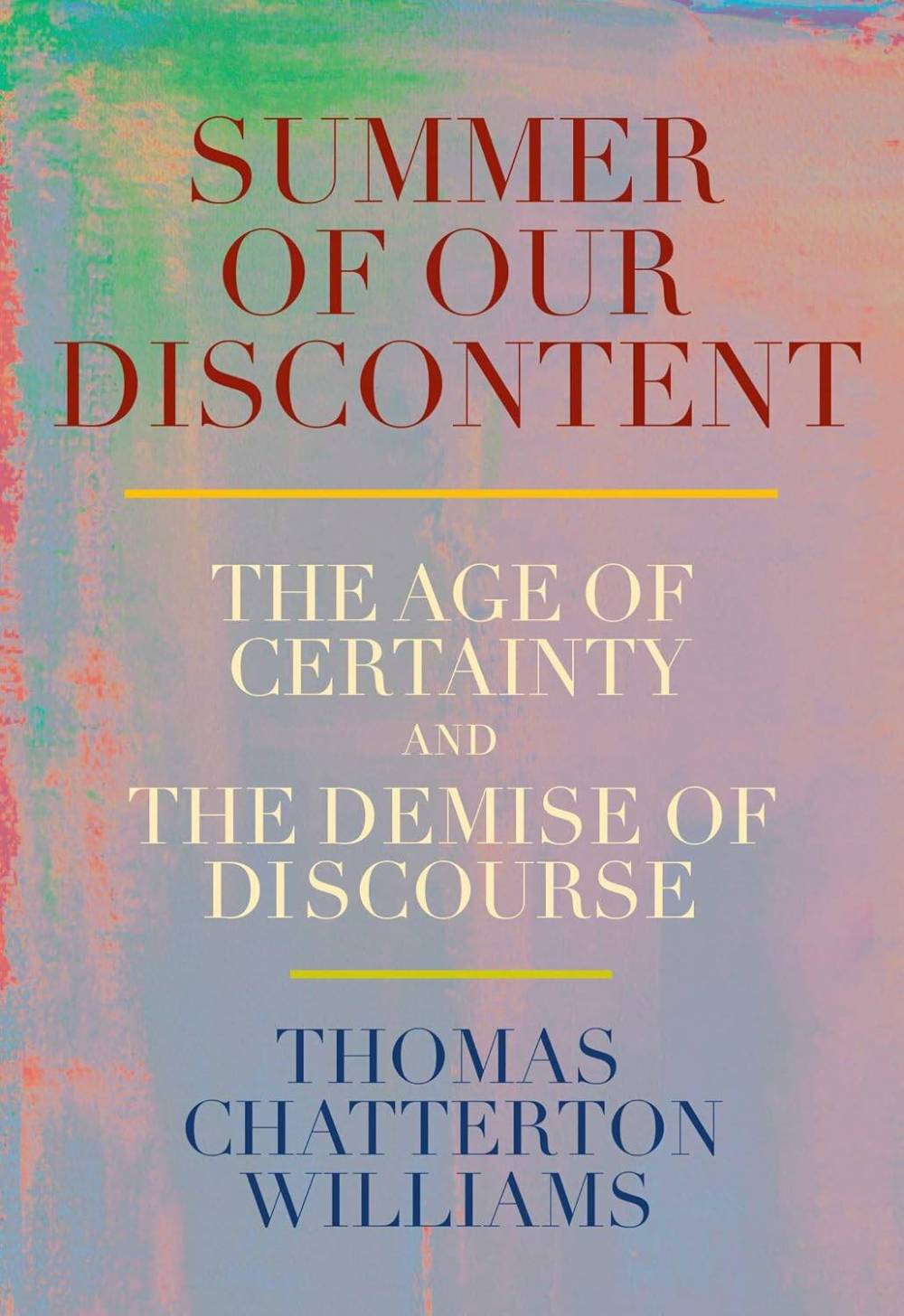Culture clash
Summer of 2020 saw left and right go head-to-head over COVID-19, George Floyd death
Advertisement
Read this article for free:
or
Already have an account? Log in here »
To continue reading, please subscribe:
Monthly Digital Subscription
$1 per week for 24 weeks*
- Enjoy unlimited reading on winnipegfreepress.com
- Read the E-Edition, our digital replica newspaper
- Access News Break, our award-winning app
- Play interactive puzzles
*Billed as $4.00 plus GST every four weeks. After 24 weeks, price increases to the regular rate of $19.00 plus GST every four weeks. Offer available to new and qualified returning subscribers only. Cancel any time.
Monthly Digital Subscription
$4.75/week*
- Enjoy unlimited reading on winnipegfreepress.com
- Read the E-Edition, our digital replica newspaper
- Access News Break, our award-winning app
- Play interactive puzzles
*Billed as $19 plus GST every four weeks. Cancel any time.
To continue reading, please subscribe:
Add Free Press access to your Brandon Sun subscription for only an additional
$1 for the first 4 weeks*
*Your next subscription payment will increase by $1.00 and you will be charged $16.99 plus GST for four weeks. After four weeks, your payment will increase to $23.99 plus GST every four weeks.
Read unlimited articles for free today:
or
Already have an account? Log in here »
It may seem difficult now, five years on, to recall just how dramatically the world changed in 2020, and the tragic convergence of forces that fuelled that transformation. “Americans,” writes Thomas Chatterton Williams in The Summer of Our Discontent, “spent the summer and fall of 2020 coming apart spectacularly.”
Between the lethal (yet bizarrely politicized) COVID-19 pandemic and the global protests in response to the murder of George Floyd at the hands of police in Minneapolis, Minn., 2020 would prove to be a year of unique fragmentation from which the world has yet to fully recover.
For Williams, there is “something deeply wrong” with American society, a profound sickness in the body politic of the nation. While he calls the second Trump administration a political disaster for America — invoking nothing less than a 9/11-based metaphor to suggest a Trumpian jumbo jet bringing down the skyscraper of American democracy — Williams nonetheless levels most of his criticism at what he calls “the social justice left.”

Alex Brandon / Associated Press files
In this June 2020 photo, a demonstrator stares down a National Guard soldier at a protest near the White House in Washington,, D.C. over the death of George Floyd in Minneapolis after he was restrained by police officers.
Williams shows the extent to which left-leaning and influential cultural institutions have, since 2016, treated the autocratic threat posed by Trump as a “state of exception” justifying their own campaign of illiberal, anti-democratic rhetoric and practices based on a host of presumed certainties — such as positioning Americans as either white or racialized, or oppressor or oppressed — and shutting down speech they oppose. He argues persuasively — with multiple explanatory footnotes on almost every page — that this collision of illiberalisms over the course of 2020 contributed to Americans losing trust in their institutions.
Williams is the author of two previous books, the autobiographical Losing My Cool and Self-Portrait in Black and White. The son of a black father and white mother (these racial descriptors go uncapitalized throughout), Williams argues in his books for a post-racial society, one which is colourblind not in the sense of not noticing racial characteristics, but in seeking to “empty” race as the most important factor of our identities. He believes classifying people by race is unscientific and disguises much more meaningful socio-economic factors such as poverty.
Williams expresses equal frustration with the use of the term “wokeness,” which he feels is both an inadequate descriptor for the excesses at stake and reinforces ideological bubbles.
It was the institutional responses to both the COVID-19 pandemic and the killing of George Floyd that epitomizes for Williams the kind of identity politics which would alienate so many voters: that within a matter of weeks, the official messaging from health authorities around lockdowns, masking and social distancing would give way to calls from those same medical experts to take to the crowded streets to protest the “virus” of racism.
Similarly, “equity-based” vaccine distribution directives prioritizing racial categories over other health factors — despite models from the Centers for Disease Control predicting overall higher fatality rates would result — also served to fuel distrust of medical authorities.

Richard Tsong-Taatarii / Associated Press files
Protesters and police face off during a rally in May 2020, after George Floyd’s death at the hands of law enforcement in Minneapolis.
Despite its title, the scope of Williams’ book extends from the closing months of the presidency of Barack Obama — during which time the promise of a post-racial America gave way to the reality of profound racial divisions — to the aftermath of Hamas’s attack on Israel on Oct. 7, 2023 and the Israeli offensive in Gaza. These latter events, he argues, served to upend some of the logic of identity-based politics: that Hamas had slaughtered Black Africans and dozens of Thai workers drew no particular outrage from the left, while the response to legal campus protests revealed the right’s paper-thin commitment to free speech.
With partisans on the extreme left and right reporting their increasing willingness to resort to force to defeat their opponents, The Summer of Our Discontent is a disquieting but eloquent plea to reject extremism, to return to traditional liberal values and politics and to see each other not as representatives of identity categories, but as fellow human beings.
Michael Dudley is a librarian at the University of Winnipeg.



